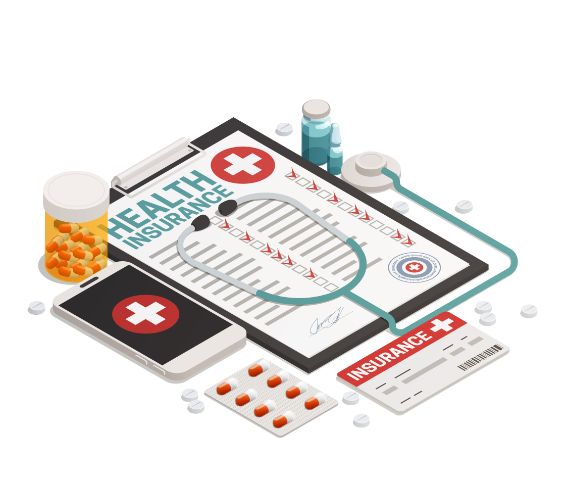Was Your Health Insurance Claim Denied? Here’s What You Should Know
Was Your Health Insurance Claim Denied? Here’s What You Should Know
Published on February 2, 2022. EST READ TIME: 3 minutes

Medical advancements have made it possible to address many health issues that were deemed incurable even a few years back. However, the cost of treatment has also soared and if you wish to get treated at a hospital of repute, you must have considerable savings to meet the expenses. Or if you have been smart, a good health insurance plan can do the trick. But if your health insurance claim gets rejected by your provider, then you might be in serious financial trouble. So, here’s what you should know about the reasons for such rejection so that you can avert the same.
Five main reasons why health insurance claims get denied
1. Waiting period is incomplete:
One of the most common reasons for the rejection of health insurance claims is if the waiting period is not complete at the time of filing the claim.Your health insurance policy comes with certain terms and conditions. One of these is about a waiting period for you to claim insurance for specific pre-existing health conditions. If you file a claim for treatment of one of these ailments before the waiting period is over, your claim gets automatically rejected. These terms about waiting period and which health conditions fall under it are mentioned in your policy document. So, do read it carefully and understand all the terms and conditions before you purchase your health insurance.
2. Inaccurate information:
The insurer accepts your policy based on the Principle of Utmost Good Faith. You are duty bound to divulge all details about your health accurately to the insurer when you buy a health insurance policy. The insurer believes that you have stated all details exhaustively, with nothing being left out in the proposal form. It is on basis of these facts that the insurer assesses the risk you pose and determines your premium. So, if your claim reveals that you failed to provide all the facts accurately at the time of policy purchase, it can get rejected.
There are two ways in which inaccurate information may be presented, leading to rejection of claims:
a. Misrepresentation of facts: This happens when you deliberately present a health condition in an inaccurate way. For example, if you are a diabetic but you state on your form that you are not.
b. Failure to divulge facts: This happens when you leave out vital information that can affect how the underwriter perceives you as a risk. For example, if you do not mention that your family has a hereditary ailment that you are highlylikely to contract in future.
3. Claim procedure not followed:
There is a specific process to be followed when you are filing health insurance claims. For example, youmay need to go to a listed hospital (as deemed by the insurer) for treatment, you must inform the insurer of the treatment in time, the required form must be filled up and sent along with necessary proof of payments, and so on. If you fail to follow the procedure the insurer has in place, your claim will be rejected.
4. Claim for exclusions:
In your health insurance policy you will come across a list of ailments under the heading of Exclusions. These are the ones that your policy does NOT cover. If you file a claim for any of the ailments in this list, your claim will be rejected.Hence, do read your policy document carefully before you sign up so that you are aware of what is covered and what is not.
5. Sum insured exceeded:
The last most common reason for the rejection ofhealth insurance claims is if the insured claims more money that their policy promises. Your policy has a specific sum assured amount. And any claim you make must be less than or equal to this amount. Anything in excess should be paid from your own pocket. If you file a claim for an amount that is higher than what your health insurance policy assures you, your claim can get rejected. To cut a long story short, a health insurance policy is a true lifesaver in many ways but only if your claim is cleared and you get the necessary funds from the insurance provider. So, it is important to know when your claim can get denied. In other words, keep the above instances of rejection in mind before you file a claim, so that you receive the funds you need at the right time.
Disclaimer: The above information is for illustrative purpose only. For more details, please refer to policy wordings and prospectus before concluding the sales.
RELATED ARTICLES
Health insurance claim rejected? These could be the reasons
How to claim from multiple Health Insurance plans ?
Avoid Denial of Your Health Insurance Claims with this Guide










 Health Insurance
Health Insurance  Travel Insurance
Travel Insurance  Car Insurance
Car Insurance  Cyber Insurance
Cyber Insurance  Critical Illness Insurance
Critical Illness Insurance
 Pet Insurance
Pet Insurance
 Bike/Two Wheeler Insurance
Bike/Two Wheeler Insurance  Home Insurance
Home Insurance  Third Party Vehicle Ins.
Third Party Vehicle Ins.  Tractor Insurance
Tractor Insurance  Goods Carrying Vehicle Ins.
Goods Carrying Vehicle Ins.  Passenger Carrying Vehicle Ins.
Passenger Carrying Vehicle Ins.  Compulsory Personal Accident Insurance
Compulsory Personal Accident Insurance  Travel Insurance
Travel Insurance  Rural
Rural 











